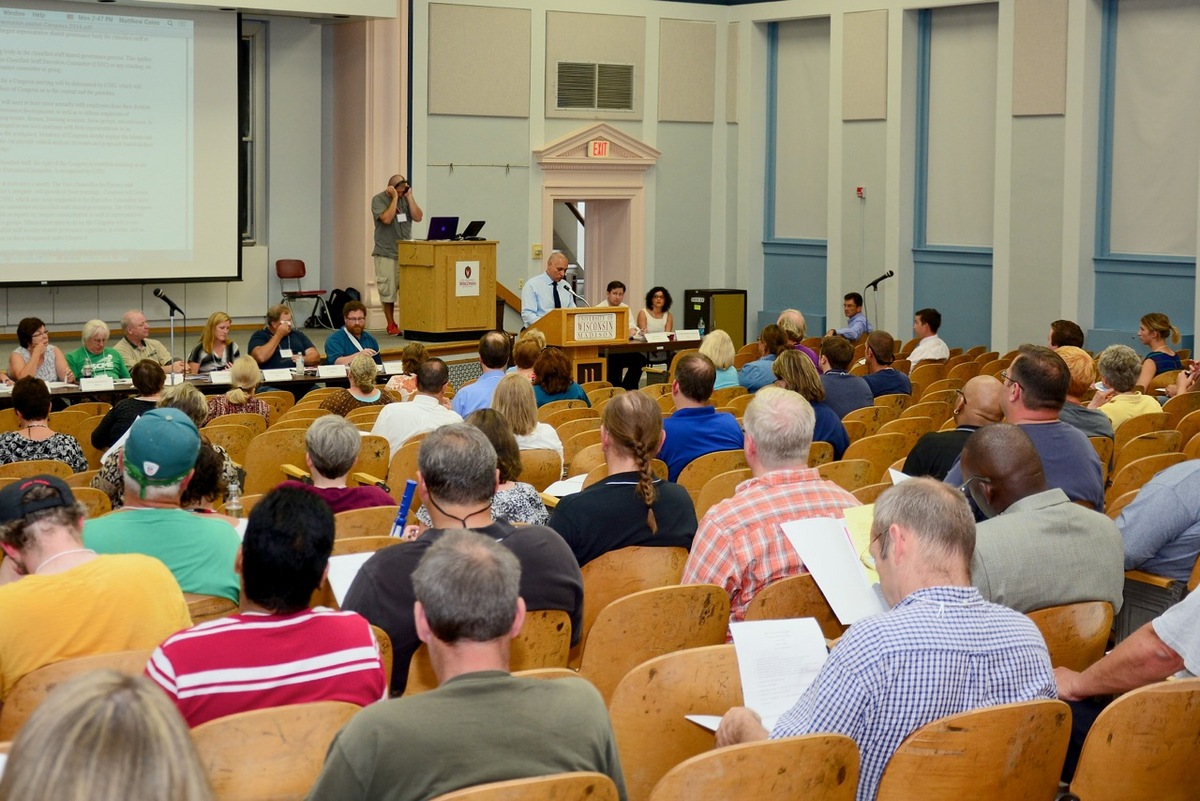Historic first meeting for Classified Staff Congress

Members of the Classified Staff Congress gathered for their history-making first meeting as participants in the shared governance of UW–Madison.
Photo: Tom Harron
History was made Monday as representatives of the first-ever Classified Staff Congress met for the first time in Bascom Hall.
An election was recently held to choose representatives for classified staff. Of the 106 open seats, 87 will be represented in congress. The remaining open seats will continue to be evaluated as Congress meets.
Darrell Bazzell, vice chancellor for finance and administration, welcomed the group and thanked them in advance for their participation.
“Shared governance is a big responsibility,” Bazzell said. “With nearly 5,000 classified employees, the classified staff is a large and diverse constituency. Your actions on the congress will have a major impact not only on classified employees but on the entire campus community.”
Twenty-four percent of classified staff members who were mailed ballots voted, showing that classified staff continues to demonstrate a high participation rate in shared governance elections.
“Your actions on the congress will have a major impact not only on classified employees but on the entire campus community.”
Darrell Bazzell
Much of Monday’s meeting focused on procedures and future policies.
The Classified Staff Congress is yet another example of how shared governance opportunities continue to grow for the nearly 5,000 classified staff employees of UW–Madison. In November, nine people were elected to the first-ever Classified Staff Executive Committee (CSEC) to help represent them.
Alisha Arnold, a human resources assistant advanced for the College of Letters & Science, represents district 194. As soon as she heard about the election, she knew she wanted to run.
“I’m very excited about this opportunity,” Arnold says. “I feel like we’ve been given authority to move forward in a collaborative way and really come together as classified staff members to make sure our views and thoughts are heard.”
The congress consists of one elected representative and one alternate from each of 106 districts. Classified staff employees voted only for the candidates in their own district, with districts consisting of employees of similar job type.
Arnold has worked at UW–Madison for four years and says she plans on listening to the concerns and ideas of those in her district.
“I want to make sure different classified staff viewpoints are heard,” Arnold says. “I feel like I can be a voice not for what I think is best but for what people in my district feel is important and needs to be voiced.”



